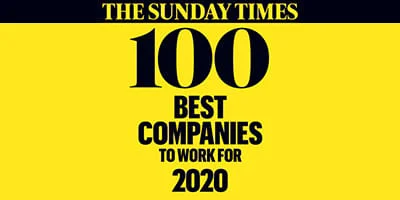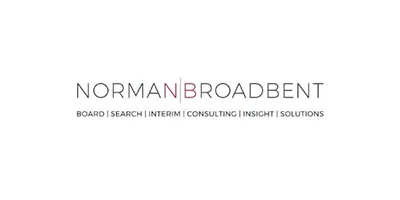Keep up to date with our knowledge hub


13 January 2026
BFS Delivers £12m Facility for Care Sector Expansion
Diverse Recruitment Group secures £12m invoice discounting facility through BFS to drive UK care sector growth and future acquisitions.
Read more
15 December 2025
Funding for growth
AMC Private Equity Ltd. has secured a £6.75 million invoice discounting facility and loan from independent SME funder, Bibby Financial Services.
Read more
19 November 2025
Manufacturing SMEs call for action on late payments ahead of budget
Unpaid invoices and rising costs leave firms delaying investment decisions, as sector urges Government to deliver stronger protections.
Read more
Updated: 15 October 2025
High costs push SMEs into survival mode as Government measures fall short
Latest SME Confidence Tracker reveals business owners are “crying out” for support in Autumn Budget.
Read more
Q3 2025: 7 October 2025
SME Confidence Tracker Q3 2025: Optimism amid challenge for businesses this Autumn
Data reveals measures business owners are demanding of the Government in November's Autumn Budget.
Read more
Updated: 30 June 2025
Global tariff turbulence costs SMEs thousands, prompting rethink of trading partnerships
New tariffs compound residual Brexit hangover for importers and exporters according to new report.
Read more
Updated: 13 May 2025
Bibby Financial Services agrees £0.7bn facility to improve access to finance for UK SMEs
BFS renews securitisation arrangement for three years, boosting its funding support for UK businesses.
Read more
Updated: 9 April 2025
British Business Bank announces facility of up to £20m with BFS Marine Finance
The British Business Bank has agreed a new facility with BFS Marine Finance, designed to increase the flow of finance to smaller businesses within the commercial marine sector.
Read more
Q1 2025: 1 January 2025
SME Confidence Tracker: Small business investment holds up, despite the economic backdrop
Last autumn, the Government had an opportunity to lay the foundations for its economic growth agenda, but the Chancellor, Rachel Reeves’ inaugural Budget was a mixed bag.
Read more
Updated: 1 November 2024
Enterprise freeze: SMEs stall investment and growth plans
New research from BFS, reveals that interest rates and political uncertainty are holding back many businesses from investing in the long-term business growth the economy needs.
Read more
Q3 2024: 1 July 2024
SME Confidence Tracker: Confidence returns, little by little
The findings of our latest SME Confidence Tracker show an optimistic but challenged SME community.
Read more
Updated: 27 June 2024
Why Invoice Finance works for recruitment companies
Recruitment involves a capital outlay to pay workers before you are paid. Recruitment Invoice Finance alleviates this financial pressure by releasing a percentage of each invoice’s value.
Read more
Updated: 19 April 2024
Spring forward for the global economy?
Read Jonathan Andrew's latest blog on the global economy and why it performed marginally better than expected.
Read more
Updated: 4 April 2024
Why Invoice Finance works for construction companies
Construction is a cashflow-critical industry. That’s why Invoice Finance, a way of releasing the value of unpaid invoices, works well for companies in the sector.
Read more
Updated: 20 February 2024
A fifth of UK SMEs want to re-join EU as new checks come into force
New research from Bibby Foreign Exchange (BFX), reveals that UK SMEs trading abroad remain hamstrung by circumstances borne out of Brexit.
Read more
5 February 2024
International Trade – insights from our 2024 Trading Places report
In December ‘23 we spoke to 500 UK-headquartered businesses that import and/or export goods and services overseas.
Read more
Updated: 5 December 2023
What is Bad Debt Protection for Invoice Finance?
Bad Debt Protection can safeguard your cashflow, mitigate the impact of customer non payment and insolvency, and support your business growth.
Read more
Updated: 14 November 2023
Further conflict put paid to the hope of a roaring twenties return
Bloomberg analysis suggests the UK economy is likely already in recession, with similar concerns growing across Europe.
Read more
Updated: 7 November 2023
What is an Invoice Finance Company?
An Invoice Finance company is a financial institution that specialises in providing money to businesses by leveraging the value of outstanding invoices.
Read more
Updated: 25 October 2023
Business finance for small and medium sized businesses - the challenge of finding the means
Demand for funding is on the rise but access is proving tricky. Over half of SMEs believe it is more difficult to get external finance now than six months ago.
Read more
Updated: 25 October 2023
How to steel your business against supply chain insolvencies
What are the risks that supply chain insolvencies pose to your business, and how can you pre-empt these risks and protect your business?
Read more
Updated: 16 October 2023
UK General Election: economy, economy, economy
With party conference season drawing to a close, the (likely) 2024 general election will be won on a different word beginning with “e”.
Read more
Quarter 4, 1 October 2023
SMEs: Not banking on finance
Our latest SME Confidence Tracker findings highlight an array of challenges facing UK PLC in 2023.
Read more
Updated: 16 August 2023
How does invoice factoring help your business manage its cashflow?
Factoring is a quick way to release cash tied up in your customers’ outstanding invoices allowing you to access your funds earlier.
Read more
Updated: 14 August 2023
Cost-of-doing-business crisis: 2023 is the worst trading environment in 15 years according to international SMEs
New research reveals that 2023 is the worst economic environment for small and medium sized enterprises (SMEs) in 15 years.
Read more
Quarter 3, 1 July 2023
Global Business Monitor 2023
The Global Business Monitor reveals insights from SMEs.
Read more
Updated: 26 June 2023
Bibby Financial Services acquires Aldermore’s Working Capital Finance division
The UK’s largest independent invoice finance provider, Bibby Financial Services, has acquired Aldermore’s Working Capital Finance division as it continues to grow its support for UK SMEs.
Read more
Updated: 25 May 2023
Why use Invoice Finance?
With invoice finance becoming more popular as a business finance solution we explore the benefits it gives to businesses that use it.
Read more
Updated: 25 May 2023
Is Invoice Discounting Right for my business?
Which type of businesses can use invoice discounting to leverage the value of their sales ledger to improve their cash flow.
Read more
Updated: 25 May 2023
Advantages and Disadvantages of Invoice Discounting
We look at the advantages and disadvantages of invoice discounting which businesses need to consider when looking for business finance.
Read more
Updated: 25 May 2023
Do you qualify for Invoice Finance?
What criteria and eligibility requirements does your business need to meet before they can apply for an invoice finance facility.
Read more
Updated: 27 March 2023
SME finance options in 2023
There are ways for SMEs to optimise how they do business. One way is for businesses to find ways to leverage their access to different forms of finance.
Read more
Updated: 8 March 2023
Equity over equality: An equation for empowering women business owners
The ugly truth is that despite representing more than half the population, women account for less than a third of entrepreneurs.
Read more
Updated: 8 March 2023
Three pieces of advice every female entrepreneur needs to hear
International Women's Day serves as an important reminder of all the inspirational progress which has been made by women in the world of business.
Read more
Updated: 13 February 2023
Bibby Leasing announces new appointments to drive growth strategy
Four new hires and refocused strategy to boost asset finance for UK SMEs.
Read more
Updated: 2 February 2023
Ripple effects
The Bank of England increase interest rates by 0.5%. The news reflects the Government’s continued focus on tackling the impact of inflation on individuals and businesses.
Read more
Updated: 10 January 2023
Paul Ratcliffe returns to Bibby to navigate Marine Finance business
International SME financier, Bibby Financial Services has appointed Paul Ratcliffe as Managing Director for its new Marine Finance business set to launch this year.
Read more
Updated: 20 October 2022
Bibby Financial Services to launch Marine Finance business
Global financier combines heritage and SME specialism for new venture.
Read more
Updated: 10 October 2022
Bibby Financial Services announces key hires to drive customer strategy
BFS has appointed Ajay Patel and Mehul Parikh as it continues to drive forward its global customer strategy.
Read more
Updated: 22 September 2022
Current economic climate is worse than during the pandemic, say 79% of SMEs
New research from BFS, sheds further light onto the cost of doing business emergency unfolding for the UK’s SME sized businesses as they fight for survival.
Read more
Updated: 22 September 2022
Cost of doing business emergency
Is the Government kicking the can down the road?
Read more
Updated: 9 September 2022
Her Majesty Queen Elizabeth II
Her Majesty Queen Elizabeth II - Bibby Line Group statement
Read more
Updated: 1 August 2022
Bibby Financial Services appoints Marion King as Non-Executive Director
Bibby Financial Services (BFS), has announced the appointment of Marion King as Non-Executive Director as it continues to work towards its ambitious growth strategy.
Read more
Updated: 27 July 2022
Bibby provides £7m finance package to retail and brand service business to support acquisition
MPL Home Limited partners with Bibby Financial Services to fund growth strategy.
Read more
Updated: 18 July 2022
Financing your business
Bibby Financial Services have a rich history of supporting new businesses with specialist financing, maintaining cash flow and providing financial plans.
Read more
Updated: 7 July 2022
Finance and funding glossary of terms
Our online finance and funding glossary of terms, helps give meaning to the words and any terms you may not recognise when using our website or guides.
Read more
Updated: 7 July 2022
Managing your assets
Managing your assets effectively can help you to take advantage of their value and provide flexibility to help grow your business and protect your cash resources.
Read more
Updated: 7 July 2022
Managing your cash flow
Bibby Financial Services are the cash flow experts, our range of products help UK businesses sustain their cash flow when they need it most.
Read more
Updated: 7 July 2022
Reducing late payments
Bibby Financial Services offer confidential solutions tackling the problems of late payments and ensure invoice financing reduces the risk of late payments.
Read more
Updated: 6 July 2022
Is a recession looming?
With rapidly rising inflation, persistent supply chain issues and labour shortages, which – combined – look set to push the UK into recession this year.
Read more
Updated: 6 July 2022
Expanding Internationally
To help you take advantage of the international marketplace, a variety of options are available if you're looking to expand your business.
Read more
Updated: 5 July 2022
How does Invoice Factoring work?
Invoice Factoring is a way of ensuring you’re paid early, rather than just on time, every time you invoice. You can access funds usually within 24 hours of issuing your invoices. Invoice factoring can be beneficial to businesses operating in a wide variety of circumstances.
Read more
Updated: 5 July 2022
The Pros and Cons of Factoring Invoices
Invoice Factoring is being more widely used by businesses. We explain the pros and cons of using invoice factoring as a way to fund your business.
Read more
Updated: 5 July 2022
Invoice Factoring vs Business Loans
You’ve probably considered business bank loans, but you might not be as familiar with invoice factoring. Here we look at these two solutions for alleviating pressure on business cashflow.
Read more
Updated: 5 July 2022
Invoice Factoring vs Business Overdraft
Business Overdrafts and Invoice Factoring are two ways to improve with business cash flow issues. Understand the pros and cons of using them.
Read more
Updated: 5 July 2022
The benefits of Invoice Factoring
Invoice Factoring helps businesses better manage, if not remove entirely, the cashflow problems associated with slow paying customers. Being able to manage cashflow through the peaks and troughs is key to success. And that’s where Invoice Factoring works best.
Read more
Updated: 5 July 2022
Invoice Discounting vs Factoring
There are two key types of invoice finance; factoring and invoice discounting. Learning more about each of these may help you decide which option is right for you.
Read more
Updated: 4 July 2022
What is Invoice Factoring?
Factoring is a way of releasing the cash tied up in outstanding customer invoices before they are paid, enabling your business to stay in control of its cashflow without having to use an overdraft or take out a loan.
Read more
Updated: 30 June 2022
Bibby Financial Services appoints Stephen Hand as UK Head of Sales
Bibby Financial Services (BFS), has announced the appointment of Stephen Hand as UK Head of Sales to boost its support for SMEs across the country.
Read more
Updated: 10 May 2022
Profitability on a knife edge: 2.1million UK SMEs are ‘just about breaking even"
More than a quarter of businesses have written-off money owed by customers in the past year.
Read more
Updated: 25 April 2022
Bibby and Azets announce strategic partnership to boost funding for SMEs
SME funder and top accountancy and advisory firm partner for invoice finance.
Read more
Updated: 4 January 2022
BFS appoints Helen Norris as Chief People & Organisation Officer
BFS has announced the appointment of Helen Norris as Chief People and Organisation Officer.
Read more
Updated: 26 November 2021
Bibby Financial Services wins at NACFB Awards
SME funder wins 'Factor & Invoice Finance Discounter of the Year'.
Read more
Updated: 23 November 2021
BFS announces new central London office to expand support in South East
Bibby Financial Services announces new central London office to expand support in South East.
Read more
Updated: 10 November 2021
Has the autumn brought a perfect storm to UK SMEs?
The Office of National Statistics’ recent revision of the UK’s economic performance for 2020 – GDP shrank by 9.7% as opposed to 9.8%.
Read more
Updated: 22 October 2021
BFS appoints Chief Technology Officer to drive tech roadmap
James Cooper appointed as CTO and Nicola Allard to head-up IT at global funder.
Read more
Updated: 6 October 2021
Greater collaboration from top to bottom will help SMEs access the required support
The pandemic has turned conventional business models on their heads and SMEs have had to quickly adapt.
Read more
Updated: 24 September 2021
SME recovery flatlines as shortages hamper turnover for second consecutive month
SME turnover fell for the second consecutive month in August as labour and skills shortages continued to hamper economic activity.
Read more
Updated: 6 September 2021
Shortage of raw materials and labour threaten long-term recovery
Subcontractors across the UK are struggling to take advantage of the economy reopening due to supply chain issues.
Read more
Updated: 27 August 2021
Bibby Financial Services appoints Derek Ryan as UK Managing Director
Experienced financier joins international funder to drive forward UK strategy.
Read more
Updated: 17 August 2021
SME turnover fall as freedom day recovery splutters
SME turnover dipped in July amid raw material shortages and ‘pingdemic’ related disruption.
Read more
Updated: 29 July 2021
International financier sees SME turnover increase by 32%
Bibby Financial Services sees strong client turnover growth as SMEs bounce back in 2021.
Read more
Quarter 3 1 July 2021
Rebuilding Growth 2021 – our latest construction sector research
Construction subcontractors across the UK have shown impressive resilience in the face of the Covid-19 pandemic.
Read more
Updated: 13 May 2021
Invoice providers that put business needs first are thin on the ground
So why sign up for a service only to find it isn’t right? We believe a three-month trial is the fairer way to go.
Read more
Updated: 10 May 2021
UK SMEs to invest an average of £150,000 as post lockdown optimism grows
The UK government’s plans to ease lockdown restrictions have seen a surge in optimism from SMEs, according to the latest Covid-19 Pulse survey from business funder, Bibby Financial Services (BFS).
Read more
Updated: 19 April 2021
Bibby Financial Services launches £300m pandemic recovery fund to support UK SMEs
Bibby Financial Services (BFS), has announced a £300m Pandemic Recovery Fund to support SMEs as lockdown restrictions are lifted.
Read more
Quarter 2, 1 April 2021
SMEs: unlocking the road to recovery
Our research among UK SMEs reveals an optimistic, yet cautious business population when unlocking the road to recovery.
Read more
Updated: 5 March 2021
Spring Budget
A comprehensive package for business, but did The Chancellor miss a green trick?
Read more
Updated: 24 February 2021
£4 million facility opens doors for Yorkshire manufacturer
Modular Group Investments partners with Bibby Financial Services to acquire Euramax Solutions Ltd.
Read more
Updated: 24 February 2021
After a string of false starts, the restart is finally here for good
Jonathan Andrew, Global Chief Executive of Bibby Financial Services, says SMEs have good reason to feel optimistic in 2021.
Read more
Updated: 25 January 2021
Should SMEs remain optimistic, despite ongoing disruption?
How SMEs can turn the resilience they showed in 2020 into the energy needed to return to growth in 2021.
Read more
Updated: 4 January 2021
£1 million facility provides fresh funding for Yorkshire food wholesaler
Tuber Produce renews funding partnership with Bibby Financial Services.
Read more
Updated: 18 December 2020
Bibby Financial Services announces new senior team to drive growth strategy
Lucile Knight, Richard Olver and Axel Scholz join global funder.
Read more
Updated: 18 November 2020
A shot in the arm for the global economy, or is it too soon to tell?
According to the International Monetary Fund, Coronavirus has plunged the world into “a crisis like no other.”
Read more
Updated: 5 November 2020
BFS partners with The Funky Appliance Company
Bibby Financial Services (BFS), has provided a significant funding facility to The Funky Appliance Company, a young UK business producing stylish and unique electrical appliances.
Read more
Updated: 22 October 2020
South West interiors specialist secures £1 million funding
SME funder, Bibby Financial Services has provided a £1.1 million funding line to LWS Interior Solutions and South West Kitchens.
Read more
Updated: 1 October 2020
Government support is a good start, but won’t alone save businesses this winter
A blog by Jonathan Andrew, Global Chief Executive, of Bibby Financial Services.
Read more
Quarter 4, 1 October 2020
UK Intermediary Market Survey
The economic outlook for financial brokers and business advisors.
Read more
Updated: 18 August 2020
Late payments stifling economic recovery as UK SMEs turn down work to manage cashflow
A majority of UK SMEs are being paid later as a result of the Covid-19 pandemic, according to a BFS survey.
Read more
Updated: 17 August 2020
Fine foods wholesaler secures £5m funding line
Bibby Financial Services partners with Hider Foods International Ltd.
Read more
Updated: 17 August 2020
Luxury toiletries business freshens up with £850k funding
Bibby Financial Services provides funding to H Bronnley and Co UK Ltd.
Read more
Updated: 28 July 2020
Hygiene firms look to clean up with £4m funding line
Bibby Financial Services has provided a £4m Invoice Discounting facility to the Bothongo Group UK.
Read more
Updated: 22 July 2020
Bibby Financial Services appoints Jonathan Andrew as Global CEO
Bibby Line Group has announced that Jonathan Andrew will join its Bibby Financial Services business as Global CEO on 1st September, 2020.
Read more
Updated: 16 July 2020
Engineering group to power growth with over £1 million funding
Bibby Financial Services (BFS) has provided a £1.1 million Invoice Discounting and Asset Finance funding facility to First Components Group Ltd.
Read more
Updated: 8 July 2020
BFS Corporate team make £40m of new funding available in June
Bibby Financial Services (BFS), provided £40m in new funding facilities to corporate businesses throughout June.
Read more
Updated: 1 July 2020
Invoice finance deal to support acquisition led growth strategy
Scottish Transport group on road to success with £9m Group funding deal.
Read more
Updated: 6 May 2020
Plastic recycling business secures £6m funding facility
Bibby Financial Services provides funding to Bright Green Plastics Ltd.
Read more
Updated: 21 April 2020
A third of UK SMEs to run out of cash by July, despite Government support
BFS study reveals scale of coronavirus lockdown impact on UK SMEs.
Read more
Updated: 16 April 2020
Currency volatility and overseas trade
How SMEs can mitigate the risks of currency volatility when trading overseas during these unprecedented times.
Read more
Updated: 16 April 2020
Scottish refrigeration specialist receives £3.5m funding facility
Bibby Financial Services partners with Capital Cooling Refrigeration Ltd.
Read more
Updated: 14 April 2020
SME funding during coronavirus pandemic
SME loans options may seem uncertain due to the Covid-19 crisis but there is support available from the public and private sector.
Read more
Updated: 26 March 2020
BFS confirms support measures for businesses during pandemic
BFS offers responsive funding decisions and enhanced support for international traders among support pledges during Covid-19 pandemic.
Read more
Updated: 19 March 2020
Supporting businesses through uncertainty
David Postings, Global Chief Executive Officer of Bibby Financial Services, explains how the organisation is supporting clients during the Covid-19 crisis.
Read more
Updated: 11 March 2020
Double awards win
Double win for BFS at BCR Receivables Finance International Awards 2020.
Read more
Updated: 9 March 2020
Ventilation business secures £500K funding line
Bibby Financial Services has provided a £500,000 funding facility to FEL Group Ltd, a ventilation and air conditioning specialist.
Read more
Updated: 2 March 2020
Bibby Financial Services sells North American business to Global Merchant Fund
Independent funder to invest further in core markets.
Read more
Updated: 21 February 2020
Bibby Financial Services retains top company award
BFS recognised in Sunday Times Best Companies to Work For Awards.
Read more
Updated: 28 January 2020
Is your Recruitment business ready for IR35?
Susan Farmer, Head of Recruitment Finance at BFS, shares guidance on the IR35 legislation.
Read more
Updated: 12 December 2019
Venian Group secures £650k in funding to drive growth
Bibby Financial Services has provided two funding facilities to businesses under the Venian Group.
Read more
Updated: 5 December 2019
Empowering breastfeeding womenswear brand wins export competition
The Bshirt scoops £3,000 prize in BFS-sponsored contest.
Read more
Updated: 29 November 2019
Bibby Financial Services wins at NACFB Awards
SME funder wins 'Factor & Invoice Finance Discounter of the Year' at the 2019 NACFB Awards.
Read more
Updated: 21 November 2019
D&A Recruitment Ltd partners with Bibby Financial Services
Recruitment company secures £800,000 facility to drive growth.
Read more
Updated: 19 November 2019
Over half of SMEs are unprepared for Brexit despite another missed exit date
The latest Q3 SME Confidence Tracker report reveals 54% of UK SMEs were not prepared for Brexit ahead of the October 31 deadline.
Read more
Updated: 13 November 2019
Scottish engineering specialist secures £750K funding line
Pentland Material Supply Ltd partners with Bibby Financial Services.
Read more
Updated: 17 October 2019
BFS signs-up to SME Finance Charter
Independent funder pledges commitments as part of Govt. scheme to support SMEs.
Read more
Updated: 15 October 2019
UK SMEs least likely to invest
UK SMEs least likely to invest as brexit bites.
Read more
Updated: 14 October 2019
Uncertainty around Brexit, tariffs and exchange rates
Uncertainty around Brexit, tariffs and exchange rates.
Read more
Updated: 8 October 2019
Global Business Monitor reveals challenges for SMEs in 2019
Rising costs cause concern for SMEs amid global uncertainty, according to latest international study.
Read more
Updated: 17 September 2019
Wholesaler secures £800,000 funding line
Wholesaler secures £800,000 funding line ahead of festive period.
Read more
Updated: 9 September 2019
Norman Broadbent Group plc receives multi-million funding line
Bibby Financial Services (BFS) has provided a multi-million funding line to Norman Broadbent Group plc.
Read more
Updated: 1 August 2019
Export competition encourages UK SMEs to plan ahead.
Bibby Financial Services, is delighted to sponsor The Institute of Export & International Trade’s (IOE&IT) 12th ‘Open to Export Competition’.
Read moreUpdated: 29 July 2019
Nearly half of SMEs are struggling with cash flow as Brexit burden drains resources
Findings of the latest SME Confidence Tracker from Bibby Financial Services.
Read more
Updated: 19 July 2019
How is the construction sector funded?
A blog by Sharon Wiltshire, UK Commercial Director.
Read more
Updated: 15 July 2019
Funding growth at Complete Automotive
Yorkshire automotive supplier secures funding to steer growth.
Read more
Updated: 1 July 2019
Luxury fashion wholesaler agrees funding with Bibby Financial Services
UK clothing company Grandeur Clothing secures £400,000 invoice and trade deal.
Read more
Updated: 24 June 2019
Partnership with the Institute of Export & International Trade
The Institute of Export & International Trade and Bibby Financial Services join forces to support UK importers and exporters.
Read more
Updated: 11 June 2019
89% of subcontractors have called for Government action to restore confidence
Findings of the Subcontracting Growth Report reveal impact of Brexit on the sector.
Read more
Updated: 15 May 2019
Ensign Communications partners with Bibby Financial Services
Network infrastructure provider secures £1.5m funding line.
Read moreUpdated: 15 April 2019
Over half of SMEs predict UK recession as Brexit bites
SME Confidence Tracker reveals concerns among UK business leaders.
Read more
Updated: 8 April 2019
International electrical manufacturer secures £2.6m funding facility to power business growth
Bibby Financial Services (BFS) has provided a £2.6 million Invoice Discounting funding facility to Morris Line Engineering (Holdings) Ltd, a specialist engineering business with two well respected brands – MLE and JW Morris.
Read more
Updated: 15 June 2018
How SMEs can avoid cyber attacks
Protecting against cyber crime for your business.
Read more
Updated: 16 March 2018
Building construction a brighter future
Helen Wheeler discusses how the construction industry can grow.
Read more
Enigma People Solutions
Recruitment consultancy finds cashflow solution with a personal touch.
Read more
Eyeworks Industries
Unlocking growth opportunities with Trade Finance.
Read more
R&W Scott
Invoice Finance helps fund management buyout of manufacturing business.
Read more
Mor Cross
Mor Cross Transport Services on the road to success
Read more
Carmichael International
How to become a market leader with external funding.
Read more
TM Steels Ltd
Steel business going strong after two decades of support.
Read more
Advance PM
Commercial refurbishment business, Advance PM, looks to amplify growth
Read more
Kaboodle
Construction subcontractor rebrands and finds funding for growth.
Read more